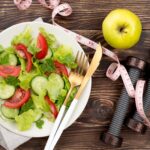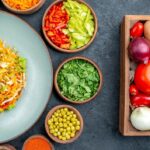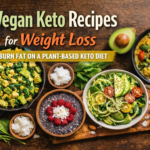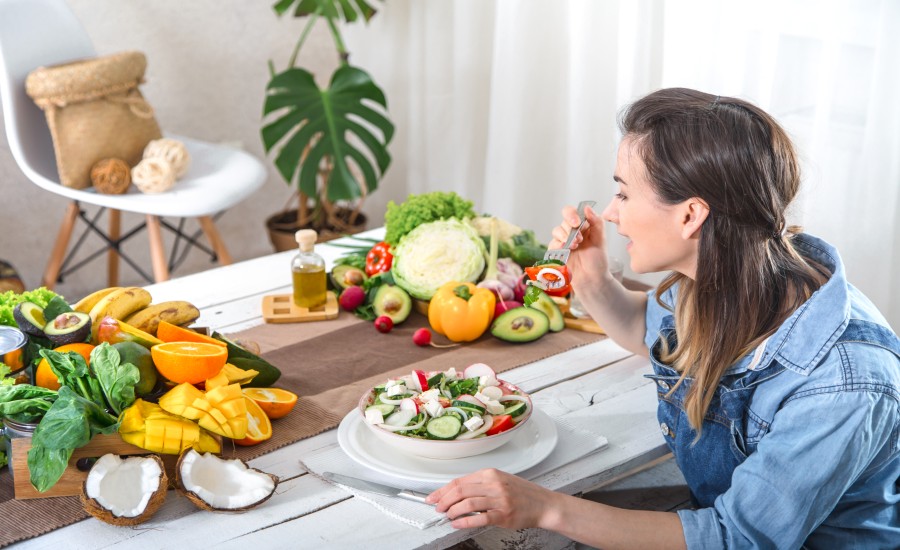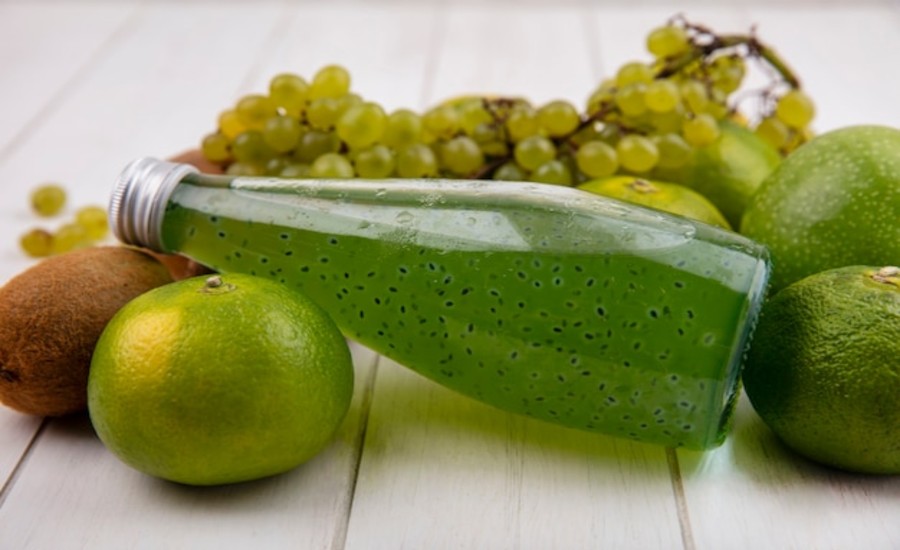The Vegan Lifestyle is gaining remarkable traction globally, and for good reason. It’s more than just a diet; it’s a conscious choice for a more compassionate and healthier way of living. Embracing a vegan healthy lifestyle means committing to plant-based eating while also considering the ethical and environmental implications of our choices. This comprehensive guide is designed for anyone curious about this transformative path whether you’re a seasoned vegetarian, a health-conscious individual, or someone simply looking to make a positive impact. We’ll explore everything from the core principles of veganism to the practical steps for getting started, ensuring your transition is smooth, enjoyable, and sustainable.
A Guide of Healthy Vegan Lifestyle
Embarking on a healthy vegan lifestyle is a journey of discovery, flavor, and well-being. It’s about intentionally choosing a wide variety of plant-based foods to nourish your body optimally. This means moving beyond simply eliminating animal products and actively building a diet rich in fruits, vegetables, whole grains, legumes, nuts, and seeds. A well-structured vegan diet ensures you receive all the essential nutrients your body needs to not just survive, but truly thrive. It’s a proactive approach to health that can lead to increased energy, improved physical wellness, and a deeper connection to the food you eat.
What is the lifestyle of a vegan?
Beyond the plate, a vegan lifestyle represents a holistic philosophy centered on compassion and the elimination of animal exploitation. True veganism encompasses all facets of life, however diet is the most noticeable. This means avoiding not only meat, dairy, eggs, and honey but also any products derived from animals.
This includes:
- Clothing and Accessories: Leather, wool, silk, fur, and down are materials that vegans steer clear of. Rather, they choose synthetic or plant-based substitutes like hemp, cotton, linen, and new materials like pineapple leather.
- Cosmetics and Personal Care: A lot of popular cosmetic products involve animal testing or include substances like tallow, lanolin, or carmine that are sourced from animals. A vegan lifestyle involves choosing cruelty-free and vegan-certified products.
- Entertainment: Vegans generally avoid forms of entertainment that exploit animals, such as circuses with animal acts, rodeos, and zoos or aquariums that are not primarily focused on conservation and rehabilitation.
- Household Products: From cleaning supplies to candles, many household items can contain animal fats or be tested on animals. Vegans look for cruelty-free and plant-based substitutes for their homes.
In essence, being a vegan means making conscious purchasing decisions across the board to minimize one’s contribution to animal suffering and environmental degradation.
Is a vegan lifestyle healthy?
This is one of the most frequently asked questions, and the overwhelming consensus from major health organizations is a resounding yes. A well-planned vegan lifestyle is not just healthy; it can be one of the most effective ways to promote long-term well-being. The key lies in the phrase “well-planned.” Simply cutting out animal products isn’t enough; you must replace them with a diverse range of nutrient-dense plant foods.
A diet rich in fruits, vegetables, whole grains, legumes, nuts, and seeds is naturally lower in saturated fat and cholesterol and higher in fiber, vitamins, and minerals. Numerous studies have linked vegan diets to a lower risk of chronic diseases such as heart disease, type 2 diabetes, certain types of cancer, and high blood pressure. However, to ensure optimal health, vegans need to pay special attention to a few key nutrients, including Vitamin B12, Vitamin D, iron, calcium, iodine, and omega-3 fatty acids. With mindful planning and potential supplementation (especially for B12), a vegan diet can support a healthy lifestyle for people of all ages, including pregnant women, children, and athletes.
How to start a vegan lifestyle?
It doesn’t have to be a daunting task to begin your road towards a vegan lifestyle. The most successful transitions are often gradual and well-researched. Here’s a doable strategy for getting going:
- Learn for Yourself: Recognize your “why.” Do you do it for the environment, the animals, or your own health? A strong motivation will keep you going. Watch documentaries, read books, and follow vegan creators for inspiration and information.
- You don’t have to go vegan all at once, so take your time. Try a “Meatless Monday” or start by replacing one meal a day with a vegan option. Eliminating red meat, poultry, fish, dairy, and eggs is a strategy that many individuals find successful. This gradual approach gives your taste buds and habits time to adjust.
- Don’t give up your favorite foods; you can “veganize” them. Pizza, burgers, tacos, and curries can all be made vegan with simple swaps. Use lentils instead of ground beef, plant-based milk instead of dairy, and nutritional yeast for a cheesy flavor.
- Stock Your Pantry: Keep vegan essentials in your kitchen. Having delicious and convenient options on hand is crucial. This is where a beginner’s vegan meal list comes in very handy.
- Read Labels: Make it a practice to look over ingredient lists. You’ll be surprised where animal products can hide (e.g., whey in chips, gelatin in candies). Look for “vegan” or “plant-based” certifications.
- Find a Community: Connect with other vegans online or in your local area. Having a support system makes the journey easier and more enjoyable.
Foods to eat on a vegan healthy lifestyle
A vibrant vegan diet is built around a variety of delicious and nourishing plant foods. Here’s a basic vegan food list for beginners to get you started:
- Fruits: All fruits are on the menu. Berries, bananas, apples, oranges, mangoes, and avocados are great staples.
- Vegetables: Load up on leafy greens (spinach, kale), cruciferous veggies (broccoli, cauliflower), and colorful options like bell peppers, carrots, and sweet potatoes.
- Legumes: This is a cornerstone for protein. Lentils, chickpeas, black beans, kidney beans, and split peas are versatile and affordable.
- Grains: Choose whole grains such as barley, quinoa, brown rice, oats, and whole-wheat pasta and bread.
- Nuts and Seeds: Almonds, walnuts, cashews, chia seeds, flaxseeds, and hemp seeds are excellent sources of healthy fats, protein, and essential nutrients.
- Soy Products: Tofu, tempeh, and edamame are fantastic protein-packed options that absorb flavors well.
- Plant-Based Milks and Yogurts: Almond, soy, oat, and coconut milk are widely available.
- Healthy Fats: In addition to nuts and avocados, use olive oil, avocado oil, and coconut oil in your cooking.
5 Benefits of a vegan healthy lifestyle
Adopting a vegan diet can have profound effects on your health. Here are five of the top vegan healthy lifestyle benefits:
- Improved Heart Health: Plant-based diets are naturally free of dietary cholesterol and low in saturated fat, leading to lower blood pressure and cholesterol levels, significantly reducing the risk of heart disease.
- Lower Risk of Type 2 Diabetes: The high fiber content in a vegan diet helps regulate blood sugar levels. Studies consistently show that vegans have a lower risk of developing type 2 diabetes.
- Potential for Healthy Weight Management: Whole-food vegan diets are rich in fiber and complex carbohydrates, which promote a feeling of fullness (satiety) on fewer calories, making it easier to maintain a healthy weight.
- Reduced Cancer Risk: Research suggests that diets high in fruits, vegetables, and legumes can protect against certain types of cancer, particularly colorectal cancer.
- Better Gut Health: The high-fiber nature of veganism feeds beneficial gut bacteria, promoting a healthy gut microbiome, which is linked to improved digestion, a stronger immune system, and better mental health.
5 Reasons for adopting a vegan lifestyle
While health is a major driver, people choose veganism for a variety of compelling ethical and environmental reasons.
- Animal Welfare: This is the foundational reason for many vegans. They believe that animals are sentient beings with a right to life and freedom, and therefore refuse to participate in practices that involve their use and suffering.
- Environmental Protection: Animal agriculture is a leading contributor to greenhouse gas emissions, deforestation, water pollution, and biodiversity loss. A vegan diet has a much smaller impact on the environment.
- Global Food Security: It takes far more land, water, and resources to produce animal products than it does to produce plant-based foods. Shifting to a plant-based food system could feed more people with fewer resources.
- Personal Health: As detailed above, the desire to prevent chronic disease and enhance overall vitality is a powerful motivator for many.
- Social Justice: The industrial animal agriculture system often relies on exploiting low-wage workers who face dangerous working conditions. For some, veganism is part of a broader commitment to a more just and equitable world.
Best Tips for following for a vegan healthy lifestyle
Making the switch is one thing; sustaining it for the long haul is another. Here are some tips to ensure the long term effects of a vegan lifestyle are positive ones:
- Prioritize Whole Foods: While vegan ice cream and burgers are great treats, base your diet on whole, unprocessed foods for optimal health.
- Remember B12: The one nutrient that isn’t consistently present in plant-based diets is vitamin B12. It’s crucial for nerve function and blood cell formation. Taking a regular B12 supplement is essential for all vegans.
- Plan Your Meals: Meal planning can save you time, money, and the stress of figuring out what to eat. It also helps ensure you’re eating a balanced diet.
- Experiment in the Kitchen: Don’t be afraid to try new recipes and cuisines. You can keep your meals tasty and interesting by experimenting with the varied world of plant-based cuisine.
- Be Kind to Yourself: You might make mistakes along the way, and that’s okay. Perfection is not the goal. If you have a non-vegan item by accident, don’t get discouraged. Simply resume eating your next meal.
Shifting to a vegan healthy lifestyle is a powerful and rewarding journey that benefits your body, the planet, and countless animals. It’s a path of conscious living, filled with vibrant foods and a renewed sense of purpose. While the transition requires learning and adjustment, the rewards from improved health to a clearer conscience are immeasurable.
Ready to explore more about vibrant, plant-based living? Dive deeper into our collection of delicious vegan recipes and practical guides on our website to support you every step of the way. Your adventure in thriving starts now!
FAQ: Vegan Healthy Lifestyle & Veganism
What do vegans eat in a day?
A typical day might include oatmeal with berries and nuts for breakfast, a large lentil salad or a hearty bean burrito for lunch, and a tofu stir-fry with brown rice and vegetables for dinner. Snacks could be fruit, a handful of almonds, or hummus with veggie sticks.
Is it expensive to be a vegan?
It doesn’t have to be. While specialty vegan products can be pricey, a diet based on whole foods like rice, beans, lentils, potatoes, and seasonal vegetables is often more affordable than a diet centered on meat and dairy.
How do vegans get protein?
This is a top concern, but it’s easy to get enough protein on a vegan diet. The best vegan protein sources include lentils, chickpeas, beans, tofu, tempeh, edamame, seitan, quinoa, wild rice, nuts, and seeds.
What is the hardest part of being vegan?
For many, the social aspect is the most challenging part—dining out, attending social events, and explaining their choices to others. However, with the growing popularity of veganism, restaurants and hosts are becoming much more accommodating.
Do vegans lose weight?
Many people experience weight loss when they switch to a whole-food, plant-based diet because it’s naturally higher in fiber and lower in calories. However, weight loss is not guaranteed, especially if one consumes a lot of processed vegan junk food.
Can you build muscle on a vegan diet?
Absolutely. There are many successful vegan athletes and bodybuilders. As long as you consume enough calories and protein from diverse plant sources, you can build and maintain muscle mass effectively.


